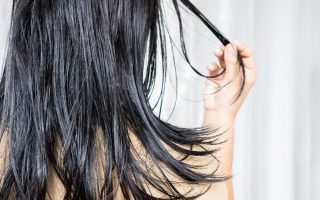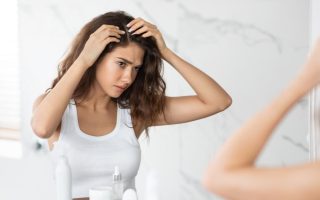Sulfates in shampoos have been a topic of much debate in the beauty and hair care industry. These ingredients, known for their powerful cleansing properties, can be found in many household products. But are they good or bad for your hair? In this comprehensive guide, we’ll explore the benefits and drawbacks of sulfates in shampoos, helping you make an informed decision for your hair care routine.
What Are Sulfates?
Sulfates are a group of chemical compounds used as cleansing agents in many personal care products, including shampoos, soaps, and toothpaste. The most common sulfates found in shampoos are sodium lauryl sulfate (SLS) and sodium laureth sulfate (SLES). These ingredients are known for their ability to create a rich, foamy lather, which helps remove dirt, oil, and product buildup from the hair and scalp.
Dr. Michelle Henry, Board-Certified Dermatologist: “Sulfates are excellent cleansers, especially for those with oily hair and scalps. They effectively remove dirt, oil, and product buildup, leaving hair feeling clean and refreshed.” (Source: mindbodygreen)
The Good: Benefits of Sulfates
1. Effective Cleansing
Sulfates are highly effective at cleansing the hair and scalp. They can remove excess oil, dirt, and product buildup, leaving your hair feeling fresh and clean.
2. Rich Lather
Many people enjoy the rich lather that sulfates create. This lathering action can make the shampooing experience more enjoyable and satisfying.
Shelly Aguirre, Stylist at Maxine Salon: “Sulfates create a rich lather, which many people enjoy. However, this lathering action can also strip the hair of its natural oils, leading to dryness and frizz.” (Source: Byrdie)
3. Affordable and Widely Available
Sulfate-containing shampoos are generally more affordable and widely available than sulfate-free alternatives. This makes them an accessible option for many people.
The Bad: Drawbacks of Sulfates
1. Dryness and Frizz
Sulfates can strip the hair of its natural oils, leading to dryness and frizz. This is particularly problematic for those with dry, curly, or color-treated hair.
Ghanima Abdullah, Hair Stylist & Cosmetologist: “Sulfates can be harsh on color-treated hair, causing color fading and dryness. If you have color-treated hair, it’s best to avoid shampoos with sulfates.” (Source: The Right Hairstyles)
2. Scalp Irritation
For individuals with sensitive skin or certain scalp conditions like eczema or psoriasis, sulfates can be irritating. They can cause dryness, itching, and flaking.
Dr. Adam Friedman, Professor and Chair of Dermatology at the George Washington School of Medicine and Health Sciences: “For individuals with sensitive skin or certain scalp conditions like eczema or psoriasis, sulfates can be irritating. They can strip away natural oils, leading to dryness, itching, and flaking.” (Source: GW School of Medicine & Health Sciences)
3. Potential for Allergic Reactions
Some people may experience allergic reactions to sulfates, which can manifest as redness, itching, and swelling of the scalp.
The Ugly: Myths and Misconceptions
1. Sulfates Cause Hair Loss
One common myth is that sulfates cause hair loss. However, there is no scientific evidence to support this claim. While sulfates can lead to dryness and breakage if overused, they do not directly cause hair loss.
Jen Atkin, Celebrity Hairstylist: “There are pros and cons to using shampoos with sulfates. It’s important to understand your hair type and choose a shampoo that meets your individual needs.” (Source: Ouai Haircare)
2. Sulfate-Free Shampoos Are Always Better
While sulfate-free shampoos are gentler and less likely to cause dryness or irritation, they are not necessarily better for everyone. Some people, particularly those with very oily hair, may find that sulfate-free shampoos do not cleanse their hair as effectively.
3. All Sulfates Are the Same
Not all sulfates are created equal. Some sulfates, like sodium laureth sulfate, are milder and less likely to cause irritation than others, like sodium lauryl sulfate.
Personal Experience: Switching to Sulfate-Free Shampoo
I used to struggle with frizzy, dry hair and couldn’t understand why my expensive shampoos weren’t delivering the results I wanted. After reading about the potential downsides of sulfates, I decided to switch to a sulfate-free shampoo. The transition wasn’t easy at first; I missed the rich lather and felt like my hair wasn’t getting as clean. However, after a few weeks, I noticed a significant improvement in my hair’s texture and moisture levels. My curls were more defined, and my scalp felt less irritated. This personal experience taught me the importance of understanding the ingredients in my hair care products and choosing those that best meet my hair’s needs.
Studies on Sulfates in Shampoo
1. The Effect of Shampoos on Scalp Sebum Production and Hair Fiber Properties
This study, published in the Journal of Cosmetic Science, investigates how different shampoo formulations, including those with and without sulfates, affect scalp sebum production and hair properties. The findings suggest that while sulfate-containing shampoos are effective at removing oil and buildup, they can also strip the hair of its natural moisture, leading to dryness and potential damage.
2. A Comparative Study of the Irritancy of Shampoo Formulations
Published in the International Journal of Cosmetic Science, this study compares the irritancy potential of various shampoo formulations, including those containing sulfates, on human skin. The results indicate that sulfate-containing shampoos can be more irritating for individuals with sensitive skin, highlighting the importance of choosing the right formulation for your hair and scalp type.
3. The Impact of Hair Washing Frequency on Scalp and Hair Condition
This study, found in the International Journal of Trichology, examines how different hair washing frequencies, and the use of sulfate-containing shampoos, affect scalp and hair health. The research suggests that over-washing with sulfate shampoos can lead to dryness and irritation, emphasizing the need for a balanced washing routine.
4. The Effect of Sulfate-Free Shampoo on Hair Quality
Published in the Journal of Cosmetic Dermatology, this study assesses the impact of using sulfate-free shampoos on hair quality, including moisture, strength, and shine. The findings support the benefits of sulfate-free shampoos for individuals with dry or damaged hair, as they help maintain the hair’s natural moisture balance and reduce frizz.
Choosing the Right Shampoo for Your Hair Type
1. Oily Hair
If you have oily hair, a sulfate-containing shampoo can be beneficial in removing excess oil and keeping your scalp clean. However, it’s essential to balance cleansing with moisture to prevent stripping your hair of all its natural oils.
Expert Insight
Dr. Michelle Henry, Board-Certified Dermatologist: “Sulfates are excellent cleansers, especially for those with oily hair and scalps. They effectively remove dirt, oil, and product buildup, leaving hair feeling clean and refreshed.” (Source: mindbodygreen)
2. Dry or Curly Hair
For those with dry or curly hair, sulfate-free shampoos are often a better choice. They provide gentle cleansing without stripping the hair of its natural moisture, helping to maintain hydration and reduce frizz.
Kerry Yates, Trichologist and Founder of Colour Collective: “If you have curly or dry hair, it’s best to avoid sulfates, as they can make your hair even drier and more prone to frizz. Look for sulfate-free shampoos that gently cleanse and hydrate your hair.” (Source: Colour Collective)
3. Color-Treated Hair
Color-treated hair requires special care to maintain its vibrancy and health. Sulfates can cause color fading, so choosing a sulfate-free shampoo is often recommended for color-treated hair.
Ghanima Abdullah, Hair Stylist & Cosmetologist: “Sulfates can be harsh on color-treated hair, causing color fading and dryness. If you have color-treated hair, it’s best to avoid shampoos with sulfates.” (Source: The Right Hairstyles)
Conclusion: Finding What Works for You
The debate over sulfates in shampoos is complex, with valid points on both sides. Ultimately, the best choice for your hair depends on your specific hair type, scalp condition, and personal preferences.
Dr. Adam Friedman, Professor and Chair of Dermatology at the George Washington School of Medicine and Health Sciences: “For individuals with sensitive skin or certain scalp conditions like eczema or psoriasis, sulfates can be irritating. They can strip away natural oils, leading to dryness, itching, and flaking.” (Source: GW School of Medicine & Health Sciences)
By understanding the benefits and drawbacks of sulfates, you can make an informed decision that aligns with your hair care needs and goals. Whether you choose to use sulfate-containing shampoos or opt for sulfate-free alternatives, the key is to listen to your hair and scalp and adjust your routine as necessary.
Personal experiences, expert insights, and scientific studies all contribute to a well-rounded understanding of sulfates in shampoos. By staying informed and mindful of your hair’s unique needs, you can achieve healthy, beautiful hair that looks and feels its best.




